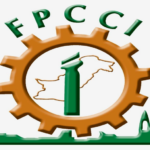
FPCCI demands End to Curtailments for 12 Wind Power Projects Which Have Low Tariff Atif Ikram Sheikh, President FPCCI
Karachi: Mr. Atif Ikram Sheikh, President FPCCI, has raised serious concerns regarding the ongoing
curtailment on 12 wind power projects which have low tariff. He added that this is happening despite their
cost-effectiveness and alignment with national energy goals, he added.
Mr. Atif Ikram Sheikh has criticized the continued preference for expensive, obsolete power sources;
urging the government to adhere to the Renewable Energy Policy 2006. He emphasized that the current
situation is causing significant curtailments; leading to substantial financial losses for wind energy project
developers. This scenario is impacting their ability to service debts; maintain operations and also
compromising their return on investment (ROI) – which is jeopardizing future expansions as well.
FPCCI Chief maintained that due to the curtailment issues, confidence among foreign investors will be
severely affected; which will directly be impacting any future foreign direct investment (FDI) in the
renewable energy sector. Ultimately, it can lead to project defaults and financial instability, he added.
Mr. Atif Ikram Sheikh stressed the importance of creating a stable, consistent and supportive environment
for renewable energy; aligning with the Special Investment Facilitation Council's (SIFC) focus on the
energy sector.
Meanwhile, Mr. Fawad Jawed, Convener of FPCCI’s Central Standing Committee on Renewable Energy,
highlighted the economic and environmental advantages of wind power. He elaborated that wind energy
in Pakistan offers clean, affordable electricity at a tariff of PKR. 13.8 per kWh – which is significantly
lower than RLNG, RFO and coal-fired plants.
Mr. Fawad Jawed explained that 12 wind power projects in the Jhimpir Wind Corridor, with a combined
capacity of 610 MW, have been commissioned since 2021. However, these must-run plants – as
designated by the Renewable Energy Policy 2006 – face frequent curtailments and reduced offtake. This
is a loss of cheap electricity to our nation, he added
Mr. Fawad Jawed noted that it undermines our sustainable energy goals and hinders our progress towards
achieving a 50 percent emissions reduction by 2030 and a 30 percent renewable energy share in the
national grid by 2030 – as outlined in the Alternative & Renewable Energy Policy 2019.
Mr. Fawad Jawed explained economic impact of the curtailments that the wind power plants have the
potential to deliver exceptionally cost-effective electricity once they reach their capacity factor of around
38%. However, underutilization prevents these cost savings from being passed on to consumers, he added.
In the interest of the national economy and power consumers, FPCCI demands an immediate and lasting
end to the curtailments for 12 wind power projects which have low tariff. FPCCI also demands that the
Existing Energy Purchase Agreements (EPAs) should be honoured.

